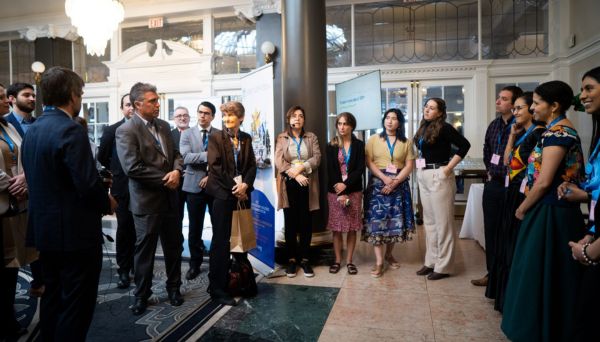Thank You for Making #CEC30 a Success!
We would like to thank everyone who took part in #CEC30, whether with us in Victoria, British Columbia, Canada or virtually.
The 30th annual Session of the Commission for Environmental Cooperation (CEC) Council and Joint Public Advisory Committee (JPAC) Public Forum took place on 28 and 29 of June on the traditional land of the lək̓ʷəŋən People (Le-KWUNG-en), known as the Songhees and Esquimalt First Nations. The event brought together the top environmental officials from Canada, Mexico and the United States, as well as representatives from Indigenous Peoples and local communities, youth, experts, and the public at large under the theme Indigenous and Urban Approaches to Climate Adaptation. The two-day conference’s public sessions consisted of the following:
- JPAC Public Forum on Indigenous Approaches to Climate Adaptation;
- CEC Panel on Nature-Based Solutions, Environmental Justice and Climate Adaptation in Urban Environments; and
- Council Public Session on Indigenous and Urban Approaches to Climate Adaptation.
Stay tuned for the event recordings, which will be available soon here.
During this year’s Council Public Meeting, the Council announced a new set of initiatives and projects that will advance trilateral environmental cooperation via the CEC for the coming years, enhancing our current collaboration under the Strategic Plan 2021-2025.
This Council Session also served as an opportunity to welcome Tim Gull as the new CEC Traditional Ecological Knowledge (TEK) and Indigenous Affairs Officer.
Tim has worked for the Government of Canada on Indigenous affairs since 2011 and recently served as Manager, Reconciliation for Environment and Climate Change Canada. He was involved in the creation of the Canada Water Agency, where he led Indigenous engagement for 2 years. In his new position, Tim will work closely with the Traditional Ecological Knowledge Expert Group (TEKEG) and will assist the CEC in developing Indigenous engagement protocols and strategies.
The Secretariat is delighted to welcome Tim to the CEC and looks forward to supporting him in elevating Indigenous engagement at the trilateral level across North America!
Thank you to everyone for engaging on social media and for using our event hashtags (#CEC30, #CCA30, #CCE30) with 745 posts, totaling an event hashtag reach of more than 8.5 million people!
We encourage you to share your experiences from the Council Session by taking part in our short survey, as we strive to continually improve this event every year. We highly value and appreciate your insights.
For updates about CEC initiatives and news, sign up for our newsletter and follow us on social media.
